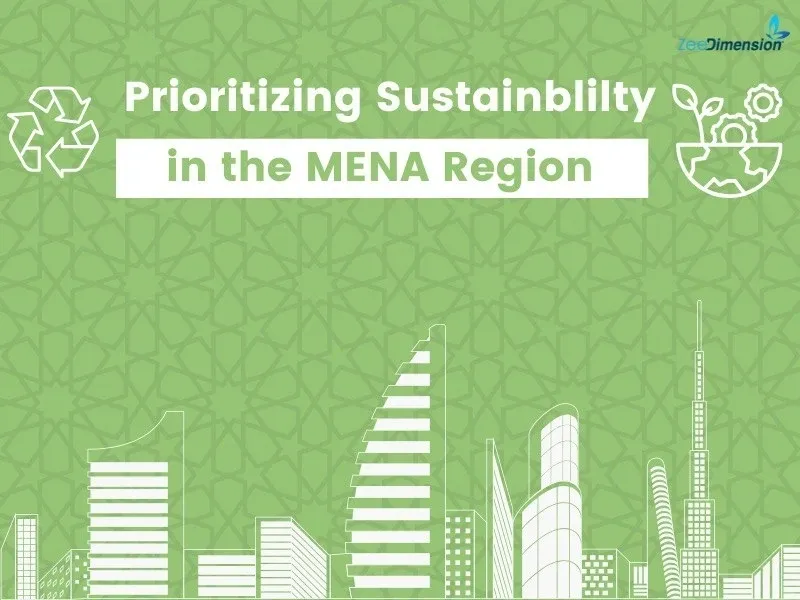
In today’s world, climate change and environmental responsibility are crucial topics, putting MENA (Middle East and North Africa) companies under increasing pressure to prioritize sustainability. Stakeholders, including investors, consumers, governments, and international organizations, are demanding more sustainable business practices. For MENA companies, aligning with global sustainability standards is now essential.
This blog will explore the benefits of sustainability, how MENA businesses can overcome challenges, and how to meet international standards. As the region seeks to balance environmental responsibility with economic growth, it has the chance to lead by example. The time to act is now, so let’s explore the solutions for long-term prosperity in the MENA region.
The Growing Pressure on MENA Companies
MENA businesses are under increasing pressure to give sustainability a priority. Stakeholders are pressuring businesses to conform to international sustainability standards and calling for more advancement in this field. To assist MENA businesses in navigating this shift, the World Economic Forum and Bain & Company have identified important issues and solutions. Now, the question is whether these businesses can step up and live up to these higher standards.
Current State of Sustainability in MENA
Historically, sustainability was not a top priority for many companies in the MENA region. However, the landscape is changing rapidly due to the growing impact of climate change, global net-zero pledges, and the increasing importance of ESG (Environmental, Social, and Governance) metrics. As a result, companies are now expected to align with international standards to meet these new demands and contribute to global sustainability efforts.
Key Challenges
Why is sustainability still a struggle?
-
Inconsistent laws in the MENA region.
-
Inconsistent reporting and gathering of data.
-
Prioritize short-term objectives over long-term ones.
-
Limited knowledge of and proficiency in ESG procedures.
The Roadmap to Sustainability
How can MENA companies overcome these challenges?
-
Adopt international frameworks (e.g., GRI, TCFD, SBTi).
-
Invest in capacity building and ESG upskilling.
-
Leverage technology like AI and IoT for tracking and reporting.
-
Engage stakeholders in public-private partnerships.
-
Set measurable sustainability goals aligned with national visions.
The Business Case for Sustainability
Sustainability isn’t just good for the planet—it’s good for business!
1- Enhance competitiveness.
2- Reduce costs through efficiency.
3- Attract socially conscious investors.
4- Build stronger customer loyalty.
Regional Commitment, Global Impact
The MENA region has the resources and potential to lead globally.
-
Align with initiatives like Saudi Vision 2030 & UAE Net Zero by 2050.
-
Balance economic growth with environmental responsibility.
-
Set a powerful example of sustainable innovation.
Conclusion:
MENA companies must step up to align with global sustainability standards, embrace the roadmap for change, and lead the charge toward a greener future. Will your company take the lead?







